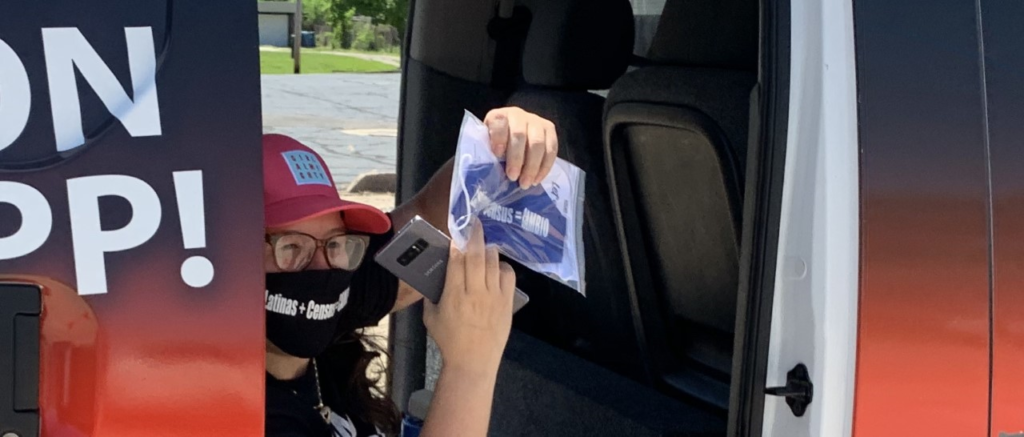¡Hágase contar! The 2020 Census is coming.
The UnidosUS Affiliate Leadership Session at the 2019 Changemakers Summit explored “The Census and Redistricting – Keys to Latino Political Empowerment” with 110 attendees representing 79 Affiliates.

The Census is a powerful tool: the prosperity and well-being of our communities depend on it, and it is vital to the functioning of our country. An accurate count of the population living in our towns, cities, counties, and states is needed to provide an equitable distribution of public funds: “The Census steers approximately $800 billion annually in federal funding to states and localities,” said Jocelyn Bissonnette, Director of the Funders Census Initiative at FCCP, the Funders’ Committee for Civic Participation.
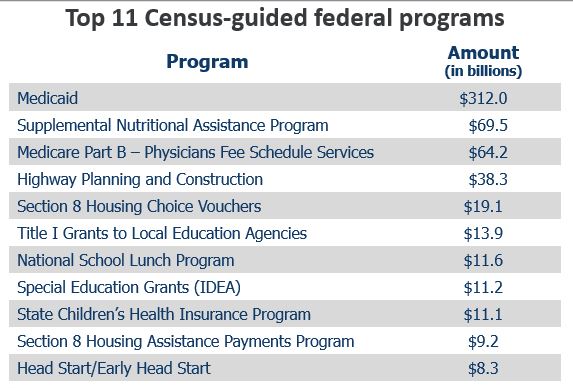
The Census is also one of the pillars of democracy in the United States: since congressional representation is based on population, there’s a need for a precise tally of the people living in the country.
Keep up with the latest from UnidosUS
Sign up for the weekly UnidosUS Action Network newsletter delivered every Thursday.
The 2020 Census is a year away, and many efforts are already underway to ensure that Latinos are properly counted; this is why UnidosUS decided to bring key players on the Census work to our 2019 Changemakers Summit. The groundwork in our communities needs to start now to ensure that hard-to-count communities do get counted, including Native American and Alaska Native populations, foreign-born and non-English–speaking communities, renters, and children under five.
UnidosUS held the session for leaders in our Affiliate Network, people who are grounded in communities that are disproportionately not counted in the Census. Speakers shared with the attendees everything they need to know to make sure our community is accounted for in the 2020 Census, for which there are already “unique challenges that we haven’t addressed before,” as Bissonnette specified during her presentation:
- The Internet will be—for the first time—the primary response option, which brings up the question of the digital divide. Affiliates in the audience wanted to be reassured that the survey will be available for every device, and Raul E. Cisneros, Director of National Partnerships at the Census Bureau, assured that it will, and that the Bureau will also work with library systems to ensure the population has access to the survey online.
- There has been a reduction in the number of field staff in larger territories.
- The Bureau’s communications plan has been delayed, missing marks on some quality-control processes.
- Inadequate funding has affected the implementation of Census operations.
- There’s already a feel for community reluctance to participate in the Census for many different reasons, including distrust of government, the citizenship question, and fear of retribution.
ADDITIONAL REFERENCE: Mapping Hard to Count (HTC) Communities for a
Fair and Accurate 2020 Census
However, Cisneros specified that challenges like these are not new to the Census: “Convincing the American people to participate has always been a challenge,” he said, and remided the audience that the Census is important, easy, and safe. What’s more, it is required by Article 1, Section 2 of the United States Constitution.
Angela M. Manso, Director of Policy and Legislative Affairs at NALEO Educational Fund, recommended to our Affiliates that they make this information known to the people they serve, as well as encourage them to fill out the questionnaire as soon as they receive it so they won’t receive a visit from a Census worker.
Citizenship question
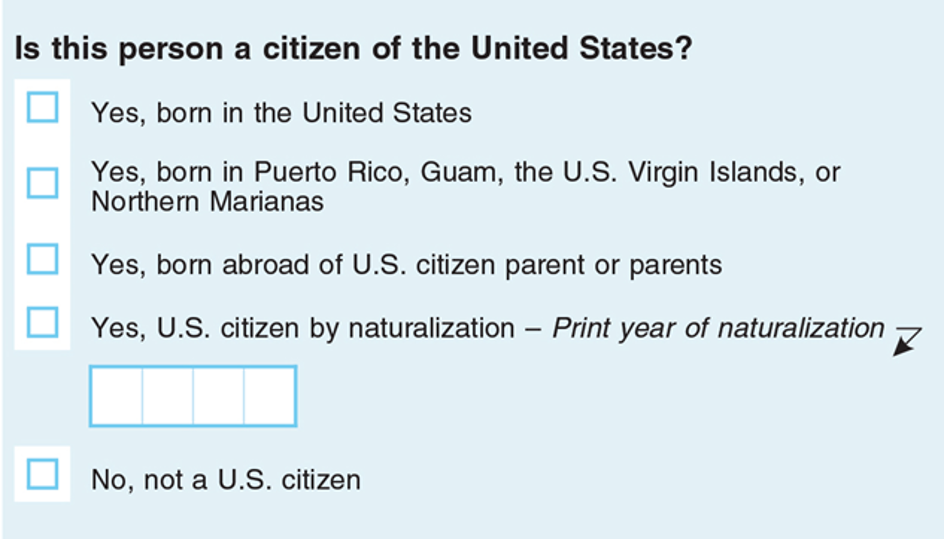
The fear of a citizenship question appearing in the Census is making this work particularly challenging. A citizenship question hasn’t appeared on the Census since 1950. Even though the Supreme Court will not make a decision on the question’s inclusion until this June, the mere possibility of its appearance on the Census questionnaire is already scaring our community.
“We have to meet people where they are, and they are afraid right now,” said Manso during her presentation to the Affiliates. “We want Congress to act, because this would depress the participation of the Latino community, and you already know what happens if we don’t get counted: it’ll impact the distribution of public resources, political representation, and sound policy making.”
The justification presented by Secretary of Commerce Wilbur Ross to add this question is that the Department of Justice needs it to enforce the Voting Rights Act (VRA). However, after nine lawsuits across the country forced the release of internal Commerce Department documents and emails, it became clear that enforcing the VRA was actually a pretext, an excuse to add this question to the Census and affect participation.
Manso has read the 277-page ruling District Judge Furman presented confirming this was a pretext, and she recommended that the audience read it: “I know you are all very busy, but it is riveting.” There was laughter from the audience, lightening the mood of this hard topic, but most importantly, Manso’s presentation brought a specific and clear call to action: “Counting the population is not a political issue. We are reaching out to both sides of the aisle because we should all want to be out of the politicizing on this topic. So, when you go tomorrow to talk to your representatives, tell them to please support the elimination of the citizenship question in the 2020 Census.” Manso was referring to the Hill visits that culminate UnidosUS’s Changemaker Summit.
Laura Ponce, Executive Director of Project BRAVO in El Paso, Texas, a UnidosUS Affiliate, presented during this session. She described how the citizenship question would especially affect her community, where 25% of the population is foreign-born, and where already almost 30% of the population didn’t self-respond to the 2010 Census questionnaire.
“We are asking the Census Bureau to provide a definite answer on what will happen if someone doesn’t reply to this question,” she told Manso, wanting to have a clear answer to share with our community in case the question of citizenship is added to the form.
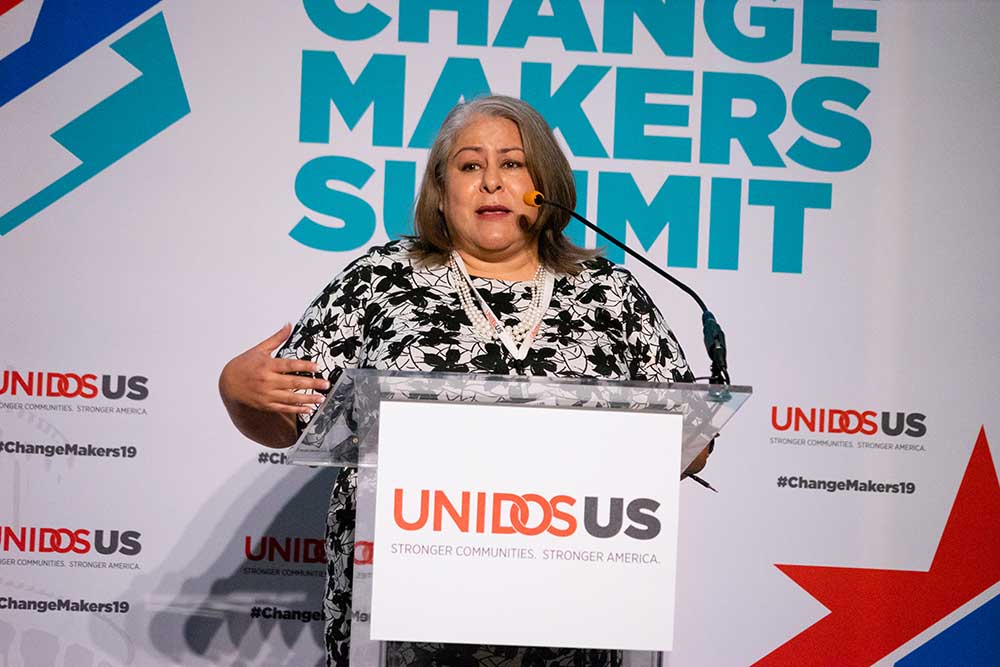
The Census count is not an equal opportunity
With the goal of moving toward “a society where marginalized communities have the power to make a difference on issues that impact their lives,” Jocelyn Bissonnette’s organization, FCCP, has created the Funders Census Initiative (FCI) to develop a strategy to drive funder approach around the 2020 Census, helping organizations like our Affiliates take on this important work.
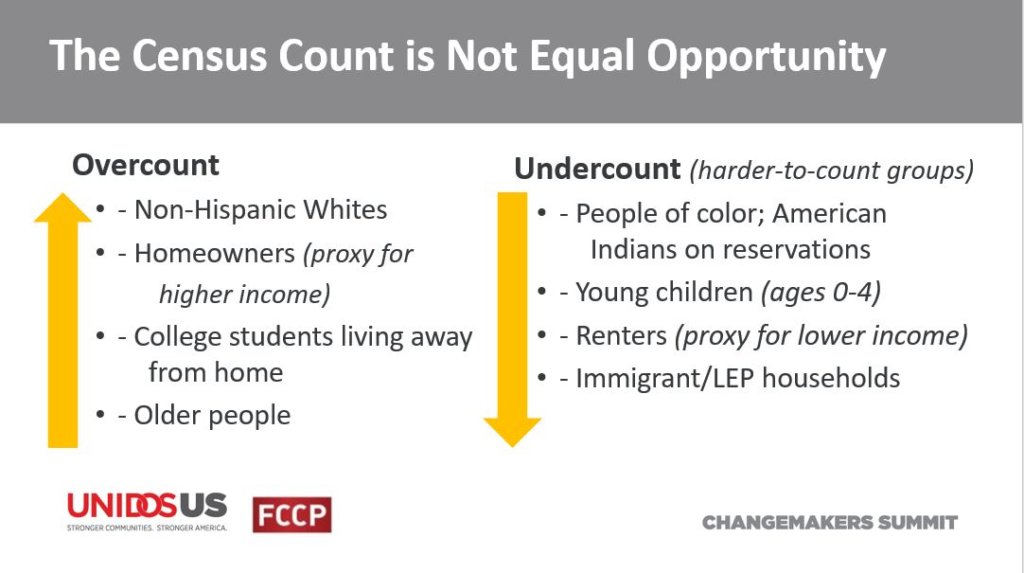
José Rodríguez, President and CEO of UnidosUS Affiliate El Concilio, explained to attendees the possibilities of funding for Census work from the community-based organization’s perspective, specifying it is not too late to look for these resources.
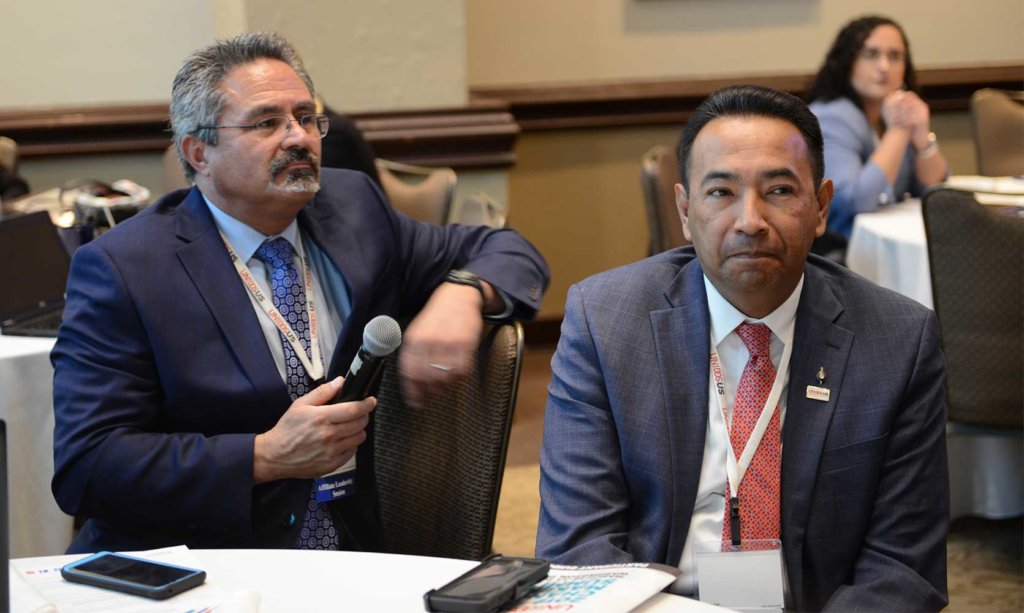
One of the issues the FCI touches upon is the fact that the Census count is not an equal opportunity: “Each individual person located at any different community across the country does not have the same probability that they will be counted, they don’t have the same inclination to be able to complete the form,” Bissonnette explained.
The lack of this equal opportunity makes it imperative that organizations like our Affiliates, who work with our community on the ground, get involved in the Census efforts: “While the Census Bureau will have this massive, general education campaign, it’s really those trusted community-based organizations that have reach in those communities that have been historically hard to count, which need the resources to do this kind of education and outreach work,” Bissonnette explained.
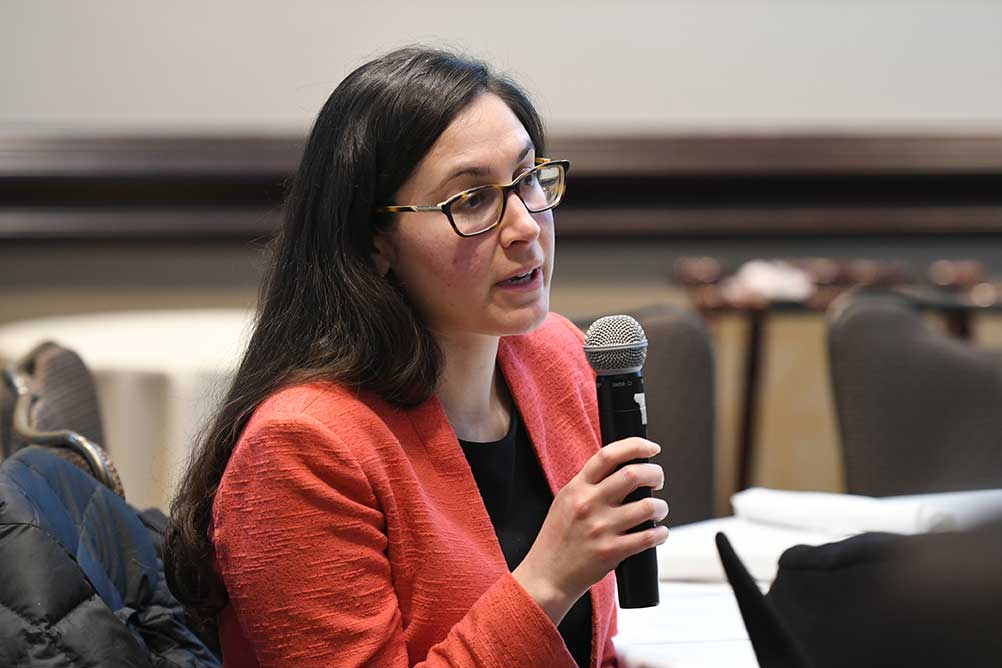
The Census Bureau is aware of these issues, which is why they have created the Complete Count Committees (CCC) program, partnering with community leaders to make sure that everyone is counted in 2020. Ponce shared how her organization has created a CCC to educate the community and promote participation in the census among Latinos. “If you are not part of a Complete Count Committee, join one, or create one,” Angela Manso urged the audience.
Fighting against misinformation
Another fear for the 2020 Census is dis- and misinformation. For example, some in our community do not understand what the Census is or why it is so important; others do not know that everyone in their household must be counted, which is one of the reasons Latino children are so undercounted; others yet worry about how to respond if there is a citizenship question, and express fears about the confidentiality of Census data.
NALEO has already prepared a page with resources for this Census, both in English and Spanish, for all organizations preparing Get Out the Count campaigns, and for the community at large: “Your campaign is about disseminating information, and we live in a digital environment, so you’re going to be needing to learn a lot more about the digital misinformation campaigns that are out there and how to mitigate for that,” Manso explained.
Yes, national efforts are being pursued to address these issues, but organizations on the ground are closer to the communities and might hear things that are not being heard at the national level. Manso told our Affiliates that “there is going to be a lot of back-and-forth of information to make sure that these things don’t spread like wildfire.”
FCI is also working on preparing culturally appropiate, relevant, compelling content that is available for the community to try and stop this trend of misinformation, “but also to make sure there are plans in place to be able to respond rapidly when there is misformation or disinformation,” Bissonnette specified.
Say #CountMeIn to show your support for the census. Sign the @CensusCounts pledge to advocate for a fair and accurate count on https://t.co/82mFcOrHNU
— UnidosUS (@WeAreUnidosUS) April 1, 2019
So much is at stake for the next decade – we MUST get the #2020Census right.
Learn more and say #CountMeIn at https://t.co/VZZnIYw6l3. pic.twitter.com/xODFPJg7vW
— The Leadership Conference (@civilrightsorg) April 1, 2019
Without the Census, there is no democracy
The challenges the 2020 Census is facing can be discouraging, but knowledge is power, and hearing from our presenters at the Affiliate Leadership Session felt empowering.
Andrea Jacobo – Board Member at Latino Memphis
“The session on the Census was amazing. I knew about the citizenship question, but I didn’t know the efforts that were both being done on the policy side and on the Census side to make sure our community is protected. After leaving the session, I feel a lot better to inform my community. One of the biggest things is messaging: how and where can we relate the messages, how we can connect with other grassroots organizations that work with the Latino community so we can have a united front when it comes to the census, because there is a lot of fear, there is a lot of misinformation and we want to try to alleviate it.”
Roberto Valdez Jr. – Communications Associate at Latino Policy Forum
“This session was very helpful. It was great that Raul E. Cisneros from the Census Bureau was here, as well as Angela Manso from NALEO, presenting a lot of the work that we are trying to replicate in the community, like their communications toolkit. Latino Policy Forum has received a $50,000 grant from Forefront for census work focused on messaging and communications. We have a plan, but we’ve never done this type of work regarding census, so knowing that there is something out there from NALEO—which is well-respected and gets the job done all the time—is nice, to lean back on and see how they are doing it. We are not going to reinvent the wheel, we are going to use what they are doing and apply it to our unique community.”
Diana Martinez Garcia (Youth Organizer)
“The session on the census was very well organized and presented. Learning what we’ve learned and taking it back to our state is going to really make a difference when we try to get people motivated to fill out the census. We have developed informational infographics to hand out, getting the constituents aware that the census is coming, and we have a timeline of what we are going to implement next year.”
Elizabeth Benitez (Immigration Organizer) at Hispanic Interest Coalition of Alabama
“We plan to start our campaign as soon as we get back. Getting knowledge from all the attendees and presenters is incredible, getting everyone’s perspective and learn more about what they are doing in their communities.”
By Beatriz Paniego-Béjar, Content Specialist, UnidosUS
